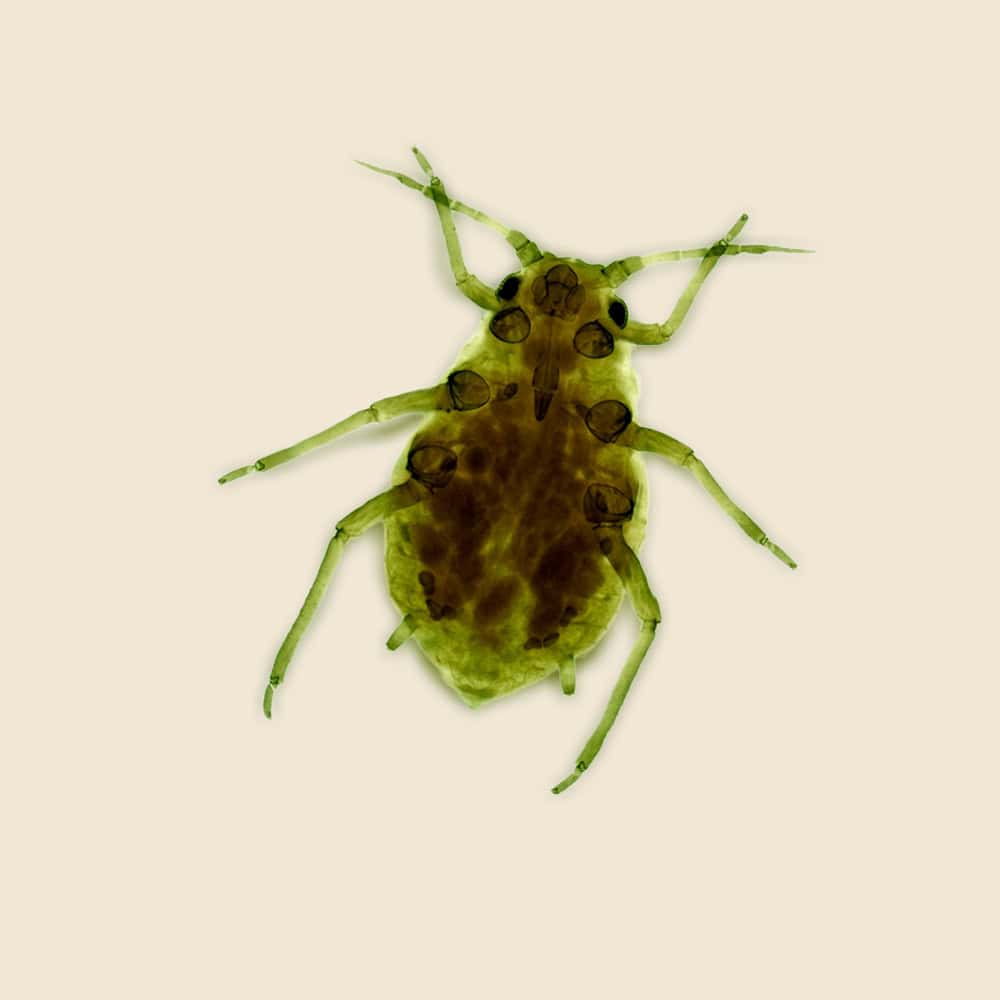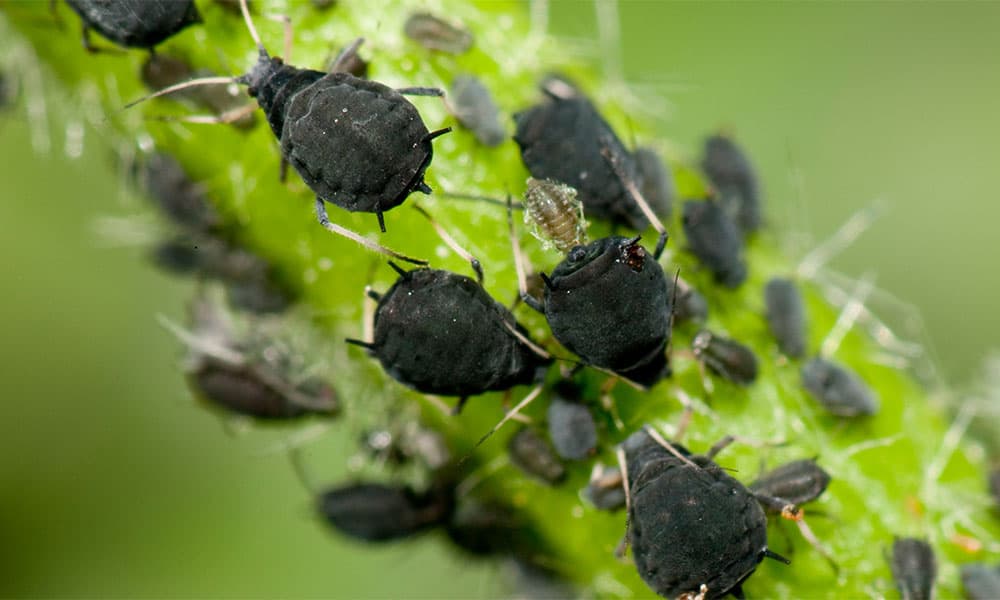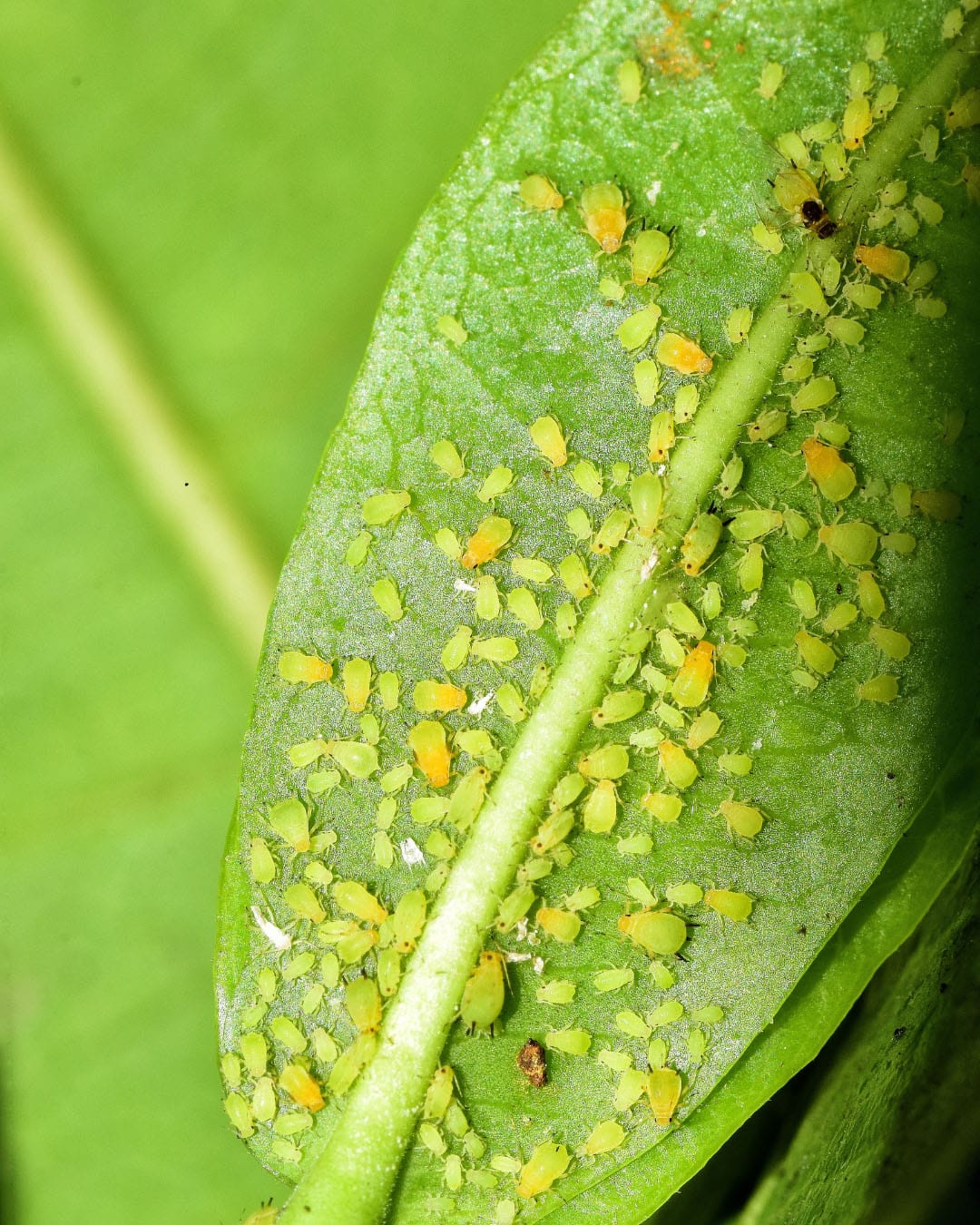Aphid Facts & Information
Aphids, known for their rapid reproduction and ability to damage plants, are common garden pests that can cause significant harm to a variety of plants. These small, soft-bodied insects feed on plant sap, weakening plants and spreading diseases, making effective control measures essential.

Aphidoidea
What You Need To Know About Aphids
What do aphids look like?
Aphids are small, soft-bodied insects that can be green, yellow, brown, red, or black depending on the species. They typically measure about 1/16 to 1/8 inch long. Aphids have pear-shaped bodies, long antennae, and two tube-like structures called cornicles projecting from their rear.
What do aphids eat?
Aphids feed on the sap of plants, using their piercing-sucking mouthparts to extract nutrients. They prefer new growth and can often be found on the underside of leaves, stems, and buds.
What sort of habitat do aphids live in?
Aphids are commonly found in gardens, agricultural fields, orchards, and greenhouses. They thrive in temperate climates and are attracted to a wide variety of plants, including vegetables, fruits, flowers, and ornamental plants.
How do aphids commonly behave?
Aphids are usually sedentary but can reproduce rapidly, often giving birth to live young. They can form large colonies in a short period. Aphids excrete a sugary substance called honeydew, which attracts ants and can lead to the growth of sooty mold on plants.
Did you know this about aphids?
Aphids are known for their ability to reproduce quickly through a process called parthenogenesis, where females give birth to genetically identical female nymphs without mating. Additionally, some species of aphids can develop wings when colonies become too crowded or when the quality of the food source declines, allowing them to disperse to new plants. Aphids are also involved in a mutualistic relationship with ants, where ants protect aphids from predators and parasites in exchange for honeydew.
Understanding Aphid Infestations
Understanding aphid infestations is crucial for effective management. Aphids can quickly form large colonies, especially in favorable conditions, and are often found on the undersides of leaves, stems, and buds. They excrete a sticky substance called honeydew, which can lead to the growth of sooty mold and further harm the plants.Aphids do not pose direct health risks to humans, but their presence can lead to weakened plants and reduced crop yields.Infestations can damage ornamental plants, vegetables, fruits, and other garden plants, leading to stunted growth and loss of plant vigor.Aphids can reproduce both sexually and asexually, allowing them to rapidly increase their population. They are often tended by ants that feed on their honeydew.

How Hearts Handles Aphid Treatment
Hearts Pest Management employs an integrated pest management approach to handle aphid infestations. Our process begins with a thorough inspection to identify affected plants and assess the severity of the infestation. We then develop a customized treatment plan that may include introducing beneficial insects, applying eco-friendly insecticides, and implementing cultural practices to improve plant health.
Aphid Inspection
Aphid Treatment
Aphid Prevention
Educational Resources

Think You Might Have a Aphid Infestation?
At Hearts Pest Control, we understand the challenges associated with Aphid infestations and are here to provide professional solutions tailored to your needs. Flourishing in warm and humid climates, they are prevalent in many regions, including San Diego County, Orange County, and Los Angeles County.